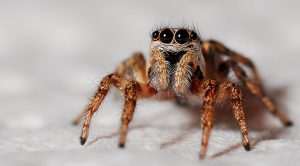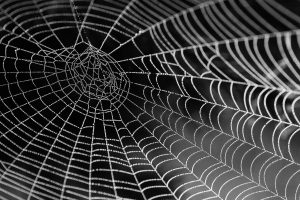 Unless you’re a tiny insect, we have good news: the majority of spiders in North America do not have lethal bites. Since most spider bites don’t fully penetrate human skin, they cause only minor reactions. However, there are two spider types that are extremely venomous and can cause a deadly allergic reaction. These are the brown recluse spider and the black widow spider.
Unless you’re a tiny insect, we have good news: the majority of spiders in North America do not have lethal bites. Since most spider bites don’t fully penetrate human skin, they cause only minor reactions. However, there are two spider types that are extremely venomous and can cause a deadly allergic reaction. These are the brown recluse spider and the black widow spider.
Did you know there are over fifty thousand different species of spiders on this planet? These smart, little critters have acquired ways to exist just about anywhere they can find a food supply. They all bite, and understanding spider bites can help to quickly diagnose a bite and seek medical treatment if the bite is from one of the more deadly spiders.
The Black Widow Spider
The black widow spider is easy to spot because of its black shiny body with orange-to-red colored markings on its abdomen. This spider lives in dark places such as attics, closets, wood piles and trash cans and is found in parts of southern Canada and California. Its bite is very poisonous and immediate medical attention is required in case you’re accidentally bitten by one.
Signs and Symptoms of a Black Widow Spider Bite
The symptoms for a black widow spider bite depend on the body sensitivity, body area and amount of toxin or venom released. Watch out for these signs of the black widow bite:
- Rigid painful muscles within eight hours
- Vomiting and nausea
- Cramping and Abdominal pain
- Stinging sensation that is often painless or mild
- Trouble breathing
The Brown Recluse Spider
The brown recluse is a poisonous spider normally found in the southern and central United States. It has a dark patch just behind its head. The recluse lives in dark places such as attics, closets, wood piles and trash cans. Though this spider is venomous, it rarely bites people. If you think a recluse has bitten you, you should immediately call your doctor or go to the emergency room.
Signs and Symptoms of a Recluse Spider Bite
- Redness and swelling around the bite
- Joint stiffness or pain
- Vomiting and nausea
- Chills and fever
- Fatigue
- Body rash
- General discomfort and sweating
The recluse is not aggressive and will only bite if threatened.
Treatment
For most individuals with spider bites, including brown recluse and black widow spider bites, the following treatment measures are all that’s needed:
- Clean the area where you have the spider bite to prevent any infections or other reactions from occurring. The best way to clean your bite area is with warm water and soap.
- If you start to experience any itching or swelling around the bite area, you may be having an allergic reaction. Apply a mild antiseptic or cream to ward off any infections
- Take a pain reliever such as acetaminophen Tylenol and others.
- If bite is on the leg or arm, elevate it above the heart to maintain proper blood circulation.
Your physician may also prescribe a tetanus booster shot if you haven’t had one in a long time. Antibiotics are also recommended in case the bite becomes infected.
 Preventing Spider Bites
Preventing Spider Bites
The following tips will help keep spiders at bay and lower the possibility of a bite:
- Frequent vacuuming and dusting helps reduce the population of spiders indoors
- Seal doors and windows to allow fewer entry locations into your home
- Keep debris, weeds and brush near the home at a minimum
- Be cautious when working in basements, barns, storage areas, attics and garages, as spiders are more likely to relocate to these darker and less-disturbed locations
- Ensure children wear pants and long sleeves when playing near woodpiles and garages, etc.
Conclusion
The best thing to do to avoid spider bites is to stay away from areas where you can get bitten by spiders, wear protective gear when handling stacked piles of materials, and inspect shoes, clothing or anything before using them.
